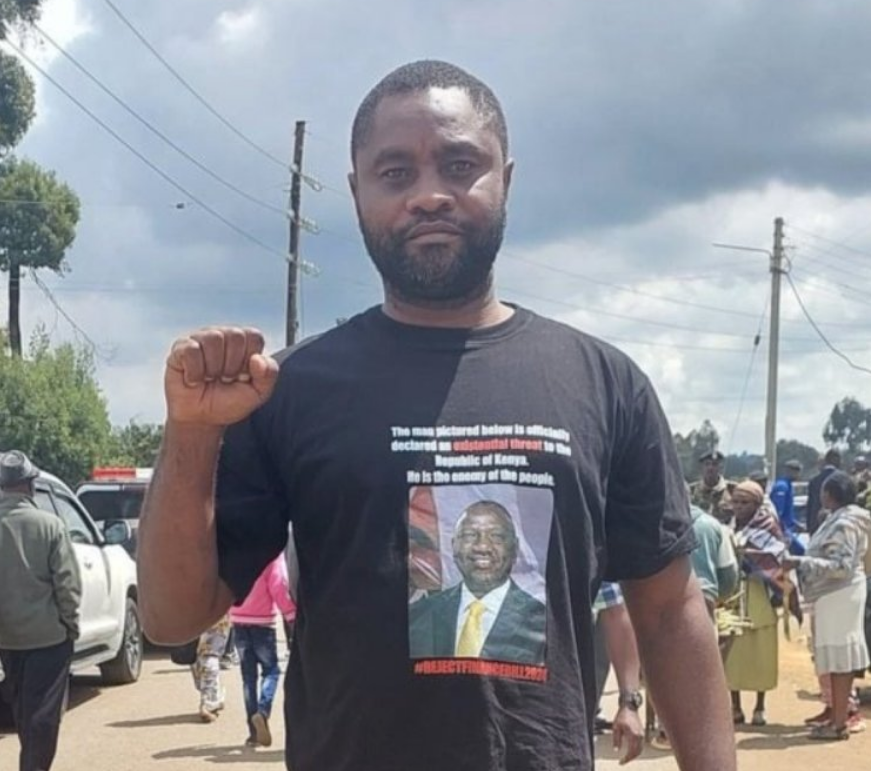Mwabili Mwagodi, known online as TL Elder, is no stranger to controversy. A former trader turned fearless activist, Mwabili rose to national attention in Kenya for his unapologetic criticism of the church’s involvement in political affairs and what he saw as oppressive taxation by the state.
His bold voice struck a chord with many ordinary Kenyans, especially during the rise of the Gen Z protest wave in mid-2024, but also attracted powerful enemies.
Mwabili’s activism began not in political rallies, but in his quiet hometown of Taita Taveta, where he once ran a small business. Like many hopeful citizens, he actively campaigned for President William Ruto during the 2022 elections, believing in the bottom-up economic promise.
But disillusionment hit hard. Mwabili would later lament that the very administration he supported had “destroyed” his source of livelihood through rising taxes and aggressive enforcement.
Rather than suffer in silence, Mwabili chose resistance. He became one of the most vocal online advocates against church leaders who, in his words, had “sold the altar for political gain.” Through hashtags like #OccupyChurch and #CleanTheAltar, he demanded accountability from religious institutions and called for the separation of church and state.
In a widely shared video from early 2025, Mwabili confronted a bishop during a consecration ceremony in Nyahururu, questioning the church’s role in shielding the government from public scrutiny. What stood out wasn’t just the boldness of his action, but the distance he had travelled—hundreds of kilometers—to make his point.
However, Mwabili’s courageous stand may have come at a heavy cost.
On July 23, 2025, Mwabili was allegedly abducted in Dar es Salaam, Tanzania. According to his family and fellow activists, he had travelled to the city for what they believed were peaceful advocacy meetings. His sudden disappearance has since triggered alarm across the region, with civil society organizations urging both the Kenyan and Tanzanian governments to investigate.
Some suspect Mwabili’s disappearance may be linked to his sustained criticism of powerful political and religious figures. The fact that he was abducted outside Kenya’s borders has raised questions about cross-border surveillance and repression of dissenting voices.
Back home, a campaign under the hashtag #WhereIsMwabili has emerged online, led by activists, faith reformers, and Gen Z influencers. Their message is clear: silence will not erase his legacy.
Mwabili Mwagodi may currently be missing, but his impact is undeniable. He represents a new wave of Kenyan civic activism one that refuses to separate faith from justice, and which demands accountability from every corner of society.
As the search for him continues, Kenyans are left grappling with uncomfortable truths: who benefits from his silence, and what does that say about the price of speaking up?





